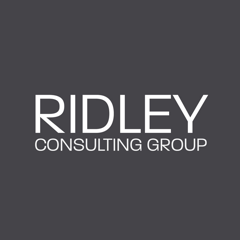The Future of DEIB At Work – How to Handle Tough Questions
 With the recent U.S. Supreme Court rulings on affirmative action and LGBTQ+ rights, I’ve heard from a number of company leaders that their employees are questioning the future of their organization’s investment in diversity, equity, inclusion and belonging (DEIB) or perhaps questioning the need for DEIB initiatives in the first place. Often employee questions stem from a genuine desire to understand the motives behind DEIB efforts and how they will directly impact them.
With the recent U.S. Supreme Court rulings on affirmative action and LGBTQ+ rights, I’ve heard from a number of company leaders that their employees are questioning the future of their organization’s investment in diversity, equity, inclusion and belonging (DEIB) or perhaps questioning the need for DEIB initiatives in the first place. Often employee questions stem from a genuine desire to understand the motives behind DEIB efforts and how they will directly impact them.
If your organization has integrated DEIB values into your mission, vision and organizational values, now is the time for leaders to reinforce that commitment through words and action.
Saying nothing about your commitment to DEIB says something.
Reinforcing your commitment to DEIB may mean not shying away from conversation with employees when faced tough questions. It is essential for leaders to address these tough questions head-on. Doing so fosters an environment of trust, transparency, and open dialogue. By acknowledging and responding to employees’ concerns, leaders demonstrate their commitment to creating an environment where everyone can speak up and diverse perspectives are welcomed. Moreover, addressing these questions allows leaders to clarify misconceptions, dispel doubts, and provide a clearer understanding of the organization’s rationale for investing in DEIB.
Below are some well-considered responses to common employee questions about DEIB to support your conversations:
Why DEIB? Why Now?
The company has high engagement scores, so why do we need to focus on DEIB?
- As a company, we must continually focus on being relevant and competitive and focus on growth. As such, we cannot be static or reactive to change. We must be proactive in anticipating trends and how we ensure our relevance, competitiveness and growth well into the future.
- DEIB is about engagement of current employees AND planning for the future in terms of: 1) evolving our business to better reflect and serve our customers and potential customers who are increasingly more diverse; 2) strengthening our pipeline for future employees, recognizing that 80% of job seekers want to work for a diverse and inclusive workplace culture. We must ensure our culture is a magnet for future talent; and 3) diversity of thought, experience, backgrounds and perspectives are needed drive creativity, innovation and value creation.
How Do We Reconcile DEIB and Fairness?
Will a focus on DEIB in recruiting result in us no longer hiring the best candidate with the highest potential?
- We are not lowering our standards. We are committed to hiring the best people while expanding our reach to find the best people. The best people are not limited to our current sources of talent and there is accessibility to broad and diverse candidate pools now more than ever (e.g. virtual job postings and interview, remote working, etc.).
- We want to make sure our company is attractive to top talent from broader and more diverse candidate pools so that our slate of candidates to hire remains competitive.
- No one type of person has a monopoly on the criteria and qualifications that make someone a competitive hire for us. Qualified talent resides in all types of people. By broadening our reach to identify qualified talent from broad and diverse candidate pools we will be elevating the standards of talent we hire.
How Will DEIB Impact Talent Management?
How will DEIB impact decisions regarding employee promotions?
- Think of DEIB as a leadership competency and one of many competencies that factor into promotions. The willingness to develop and demonstrate DEIB best practices will position someone to be a valued employee who can support our future-focused priorities that enable us to be relevant and competitive with clients and top talent and drive a thriving culture – all of which are critical for our growth and sustainability.
- We will not promote someone simply because of one dimension of diversity (e.g. gender, ethnicity, etc.). We make promotions based on everything someone brings to the table that does include unique life experiences, skills, talents, perspectives and abilities.
As a leader who believes in the benefits of a diverse and inclusive workplace, you’ve likely made a commitment to DEIB and are seeing results. An investment in crucial conversations now will keep that forward momentum going.
Want more help navigating tough employee questions? Schedule a call: https://calendly.com/bethridley1/dei-exploratory-call.
